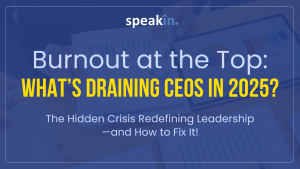Childhood Experiences: Underpinning for Future Relationships

Early childhood experiences tend to have emotional and psychological effects. These factors in turn affect our social life and our education. Parents or the caretakers are the primary attachment figures as they tend to influence and put down the foundation about how we tend to form future relationship.
Childhood experiences lay the underpinning for what will be our most basic attachment style throughout our lives. How we bond with another person and also how we respond emotionally when that person is not around is influenced by early experiences.
There are 4 attachment styles ranging from secure attachment to anxious-preoccupied attachment, these styles does not only influence how the child interacts with his parents but also how he interacts with others throughout life.
Most of the research shows that children who receive holistic support of the parents tends to have a sense of security. They form better relations with their peers and spouse.
Lack of Self- Awareness
Many times when people have difficult childhood experiences, they find themselves lost along with feeling of emptiness. The person is not able to connect with oneself. Due to the unresolved issues of childhood and lack of understanding and clarity, they have an urge to maintain safety relations with others.
This further affects future relationships to greater extent because when we don’t know our self as an individual we tend to have unrealistic perception as well as expectations from close relationships specially our intimate partner.
Avoidance of Relationship
When the child does not have secured attachment style with parents, it takes a toll on the future relationships. The person might feel that it is best not to form any relationship and tends to enjoy living in isolation. Missing out on close relationship can effect individual and social development and doesn’t provide the maximum opportunities of growth and change in personal and professional front.
Low Self-Esteem
The quality of childhood experiences affects our self-esteem. When parents are authoritarian and doesn’t provide autonomy to the child the results inevitably is low self-esteem. This is because parent’s ignores the child’s feelings, dreams, likes/dislikes. The use of a lot of criticism leads to this negative emotion which further stir the feeling of guilt and fear.
Emotionally Distant
When people grow up in families where the parents focus mainly on achievements and the road to emotional outlet is blocked, they find it hard even as adults to express their emotions and feelings. They become excellent in concealing their emotions and sometimes this may result in lack of empathy. The close relationship specially with partner or spouse, goes for a toss as the emotional intimacy tends to reduce.
Avoiding Conflict
Many times people grow up in homes, where there is a lot of stress and disharmony. Such people when they grow turn out to be people pleasers. In marriage they are afraid of being honest and are eager to give up their comfort. Such people tend to find ways to avoid confrontation rather than to resolve it. They love to be in flight mode, forget everything and run away. This makes it difficult for the couple to address problems in their marriage.
While it can be disheartening to read how the childhood experiences can have an influence on the future. If they are ignored they can wreck your close relationships specially marriage. Thus, it is necessary for parents to ensure that they create an environment which ensures overall growth and doesn’t scar the future relationships of the child.
So It is essential to address such issues and acknowledge them so that healthier emotions can be adopted. These factors can be difficult to recognise and revive thus professional guidance is suggested.
DISCLAIMER:
THE VIEWS AND OPINIONS EXPRESSED IN THIS ARTICLE ARE THOSE OF THE AUTHOR AND DO NOT REFLECT THE VIEWS OF SPEAKIN, ITS MANAGEMENT OR AFFILIATES. SPEAKIN MAKES NO REPRESENTATION AS TO ACCURACY, COMPLETENESS, CORRECTNESS, SUITABILITY OR VALIDITY OF ANY INFORMATION ON THIS ARTICLE AND WILL NOT BE LIABLE FOR ANY ERRORS, OMISSIONS OR DELAYS IN THIS INFORMATION OR DAMAGES ARISING FROM ITS DISPLAY OR USE.





